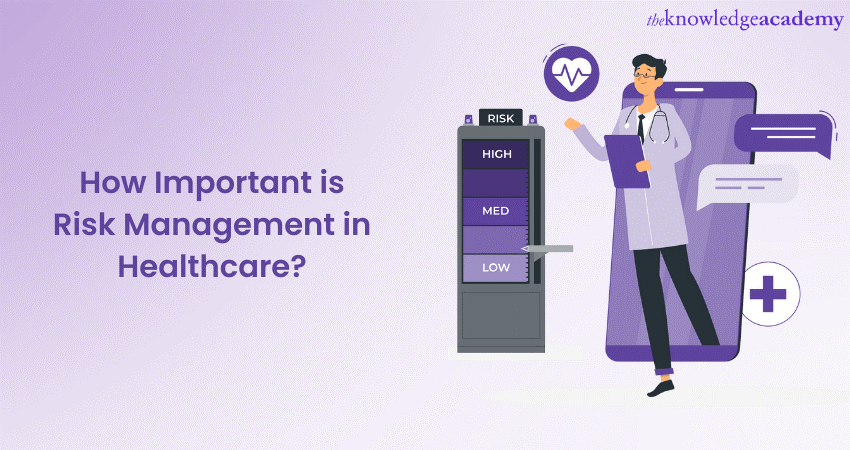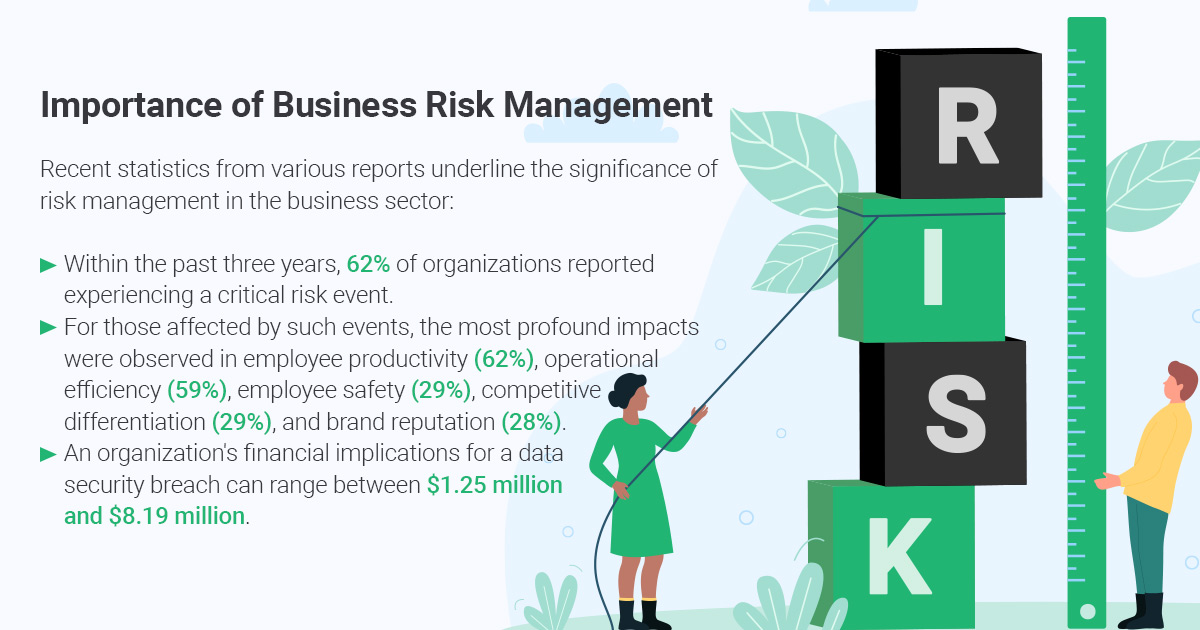The Critical Significance of Risk Management in Achieving Organizational Goals
In the rapidly developing company landscape, the ability to navigate unpredictability has become a critical. This is where Risk Management action in, giving a structured technique to recognizing, evaluating, and mitigating possible roadblocks to advance. It's even more than simply a protective action - it's a calculated device, fostering strength and development. As we explore the essential function of Risk Management in attaining organizational goals, one can not ask yourself but help: just how does this translate into real-world success?
Comprehending the Principle of Risk Management in Organization

The Important Role of Risk Management in Strategic Preparation
Incorporating Risk Management into tactical planning acts as a guard for companies, anchoring their long-term strategies with a solid foundation of readiness and durability. Risk Management offers a structure for preparing for uncertainties and creating ideal actions, making sure the organization's survival and success even in the face of adversity. By including Risk Management into critical planning, companies can transform these uncertainties right into possibilities for growth and advancement.

Techniques for Identifying, Assessing, and Prioritizing Dangers
Browsing the facility landscape of dangers needs the application of particular techniques for their identification, evaluation, and prioritization. The procedure begins with Risk identification, utilizing devices such as SWOT evaluation, which assists in pinpointing potential risks and chances. Next, Risk analysis is performed to establish the prospective effect and likelihood of each Risk. Tools such as Risk matrices and impact-probability graphes are utilized for this. Dangers are focused on based on their potential impact and chance, enabling companies to concentrate their sources on high-priority risks. This methodical strategy guarantees a thorough understanding of the Risk landscape, enabling organizations to make educated decisions and efficiently handle dangers to attain their goals - importance of risk management.
Securing Organizational Operations Through Reliable Risk Management
In business landscape laden with uncertainties, Homepage effective Risk Management plays a crucial duty in securing organizational operations. It acts as a protective shield, reducing the negative effects of potential threats and making certain the smooth performance of all processes. By identifying and analyzing possible dangers, Risk Management enables companies to develop robust contingency plans. This preventative approach help in maintaining functional security, even when confronted with unforeseen scenarios. In essence, Risk Management is the lifeline that keeps the business operations afloat amidst rough waters. It makes sure not just the survival but the lasting growth of a company, making it a crucial tool in achieving service objectives. Hence, organizations have to buy comprehensive Risk Management methods to safeguard useful reference their procedures.

Converting Prospective Dangers to Opportunities: The Power of Risk Management
A positive approach to run the risk of Management involves recognizing, analyzing, and prioritizing dangers to develop techniques that turn them right into prospective benefits. Thus, by leveraging the power of Risk Management, companies can not just protect their operations yet additionally stimulate development and accomplish their objectives in an uncertain business environment.
Case Studies: Success Stories of Risk Management Driving Company Objectives
Successful execution of Risk Management approaches has yielded remarkable results in different companies, underscoring the benefits of this approach. International firms like Microsoft and Google, for instance, have leveraged Risk Management to minimize hazards and make use of opportunities, driving their business purposes forward. These examples show how effective Risk Management can not just steer services clear of possible mistakes yet likewise direct them in the direction of their critical purposes.
Final thought
In final thought, Risk Management is fundamentally vital in accomplishing business goals. It provides an organized approach to identifying, evaluating, and addressing prospective hazards and possibilities. Greater than simply mitigating risks, it likewise promotes technology, resilience, and sustainable growth. By integrating Risk Management into critical preparation, organizations can much better browse unpredictabilities, guard procedures, and capitalise on possibilities, thereby straightening with long-lasting goals.
At its core, Risk Management is the process of identifying, assessing, and addressing possible threats that can adversely affect an organization's objectives or procedures. Next off, Risk assessment is conducted to identify the prospective read this impact and chance of each Risk. Dangers are prioritized based on their possible influence and likelihood, allowing companies to concentrate their resources on critical dangers. By identifying and evaluating possible hazards, Risk Management makes it possible for organizations to establish durable contingency strategies. A proactive strategy to run the risk of Management includes identifying, analyzing, and prioritizing risks to devise approaches that transform them right into prospective benefits.